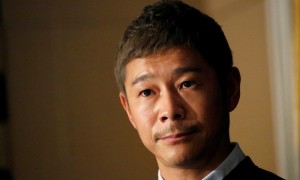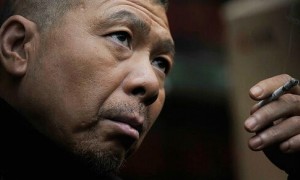Adam 和希腊交换生 Martin 在相约游完泳后一起去吃晚餐,热爱运动的两人聊着聊着,就聊到了今年 7 月即将在东京举行的奥林匹克运动会。
Adam: I’m looking forward to this year’s Olympics Games! The athletes’ performances always give me a real thrill!
Adam:我好期待今年的奥运!那些运动员的表现总让我感到很振奋!
Martin: Me too! Do you know the origin of the Olympics Games dates back to about 2,800 years ago?
Martin:我也是!你知道奥运的起源可以追溯至大约 2,800 年前吗?
Adam: Really? Oh, right! Greece is the home of the Olympics Games. You must know a lot of fun facts about that.
Adam:真假?噢!希腊就是奥运的发源地,你一定知道很多关于奥运的小常识。
Martin: Hmm… I do. Do you know the meaning behind the Olympic rings?
Martin:嗯…我猜你大概知道奥运五环的意义?
Adam: I’ve heard that the five rings represent the five continents. Blue for Europe, yellow for Asia, black for Africa, green for Oceania, and red for Americas.
Adam:我听说这五个环代表了五大洲。蓝色代表欧洲、黄色是亚洲、黑色是非洲、绿色是大洋洲,红色则是美洲。
Martin: Yes, and the five interlocking rings means that the five continents are united by Olympism, which was advocated by Pierre de Coubertin. He was the founder of the modern Olympic Games.
Martin:没错,而五个紧扣的环又代表奥林匹克主义团结了五大洲,皮耶·德·古柏坦就是奥林匹克主义的提倡者,他也是现代奥运的创始人。
Adam: Wait! What do you mean by “modern Olympic Games”?
Adam:等等!你说「现代奥运」是什么意思?
Martin: It is said that in the late fourth century, the Christian Roman emperor Theodosius I banned the Olympics because he claimed that the Olympics violated Christian principles. Not until 1894 did Coubertin revive the Olympic Games.
Martin:据说在西元四世纪晚期,罗马基督教皇帝狄奥多西一世禁止开办奥运,因为奥运违背基督教的教义。一直到 1894 年,古柏坦才重新开办奥运。
give sb. a (real) thrill (phr.) 让某人很振奋、兴奋
thrill 当名词有「兴奋;激动」之意,所以 give sb. a (real) thrill 就是「让某人很振奋、兴奋」。
It gave him a real thrill when the team he supported won the game.
当他支持的队伍获胜后,他兴奋得不得了。

date back to (phr.) 追溯至…
date back to 的意思是「追溯至…」,后面可加上明确的年份,或是某一时期。同义的片语还有 be traced back to,但注意 date back to 用主动语态,be traced back to 则用被动。
The custom of eating Zongzi dates back to the Warring States period.
吃粽子的习俗可以追溯至战国时期。
be the home of sth. (phr.) …的发源地
home 是「家」的意思,例如 be the home of sth. 是指「为…的发源地」之意。
New Orleans is the home of Jazz.
纽奥良是爵士乐的发源地。
represent (v.) 代表;象征
represent 在对话中的意思是「代表;象征」,此外它也可以指「代表某人」或「代表学校、国家 (参赛)」。
The corn poppy represents the sacrifice made by the soldiers who died in World War I.
虞美人花象征着第一次世界大战参战士兵的牺牲。
了解奥运的背景后,Adam 和 Martin 更加兴奋地讨论往年的比赛。
Adam: Which athlete do you admire the most?
Adam:你最敬佩哪一位运动员啊?
Martin: Michael Phelps, of course! He has earned 28 medals, and 23 of those are gold!
Martin:当然是麦可·费尔普斯!他已经赢得了 28 面奖牌,而且其中有 23 面都是金牌!
Adam: It’s so true! He is indeed one of the greatest athletes of all time.
Adam:真的!他的确是有史以来最伟大的运动员之一。
Martin: Recently I got hooked on watching figure skating.
Martin:最近我开始迷上看花式滑冰。
Adam: I know a young and talented figure skater named Yuzuru Hanyu. He set the world record for high scores six times!
Adam:我知道一位年轻又有天分的滑冰选手,叫羽生结弦。他在奥运比赛中六次创下最高分纪录。
Martin: Yes! You can feel a combination of elegance and power through his performances. After watching all of his videos on YouTube, I became a big fan of his!
Martin:没错!透过他的表演,你可以感受到优雅与力量的结合。看完他在 YouTube 上的所有影片后,我就成了他的粉丝!
Adam: Maybe next time, we can go ice skating to experience that same combination of elegance and power that Yuzuru Hanyu displays.
Adam:或许下次我们可以去溜冰,体验一下羽生结弦所呈现的优雅与力量的结合。
Martin: We shouldn’t. I think we will just fall down a lot and get embarrassed.
Martin:拜托别哦,我觉得我们只会一直跌倒然后出糗而已。
It’s so true! 真的!
如果有人说了某句话让你非常认同,这样的情况下就可以说 It’s so true! 或直接说 True!,来表示「真的!」、「没错!」、「就是这样!」。另外意思类似的常见说法为 I can’t agree with you more.。
A: I watched the live action version of Aladdin last night. It’s very weird and cringy.
B: It’s so true!
A:我昨晚看了真人版《阿拉丁》,看起来又诡异又尴尬。
B:真的!
get/be hooked on (phr.) 迷上;沉迷于
hook 有「钩子」的意思,get/be hooked on,字面上意思是被钩子勾住了,就代表「迷上;沉迷于」某件事物之意。
She recently got hooked on A Song of Ice and Fire.
她最近迷上了《冰与火之歌》。
in a row (phr.) 连续的 (地)
row 的意思是「一行;一排;一列」,因此片语 in a row 则衍伸出「连续的 (地)」的意思。
This NGO has held the workshop for ten years in a row.
该非政府组织已经连续办了十年的工作坊了。







